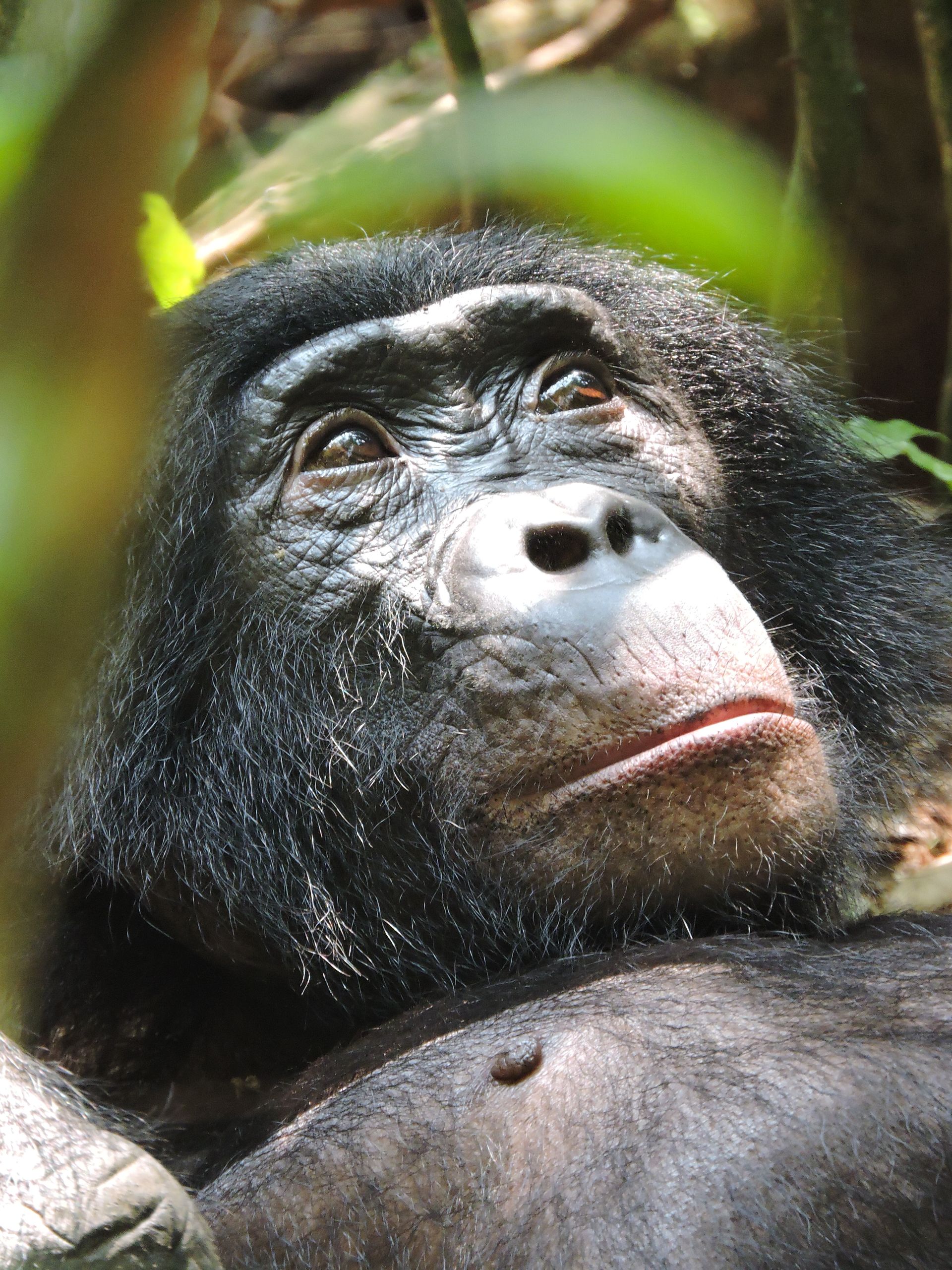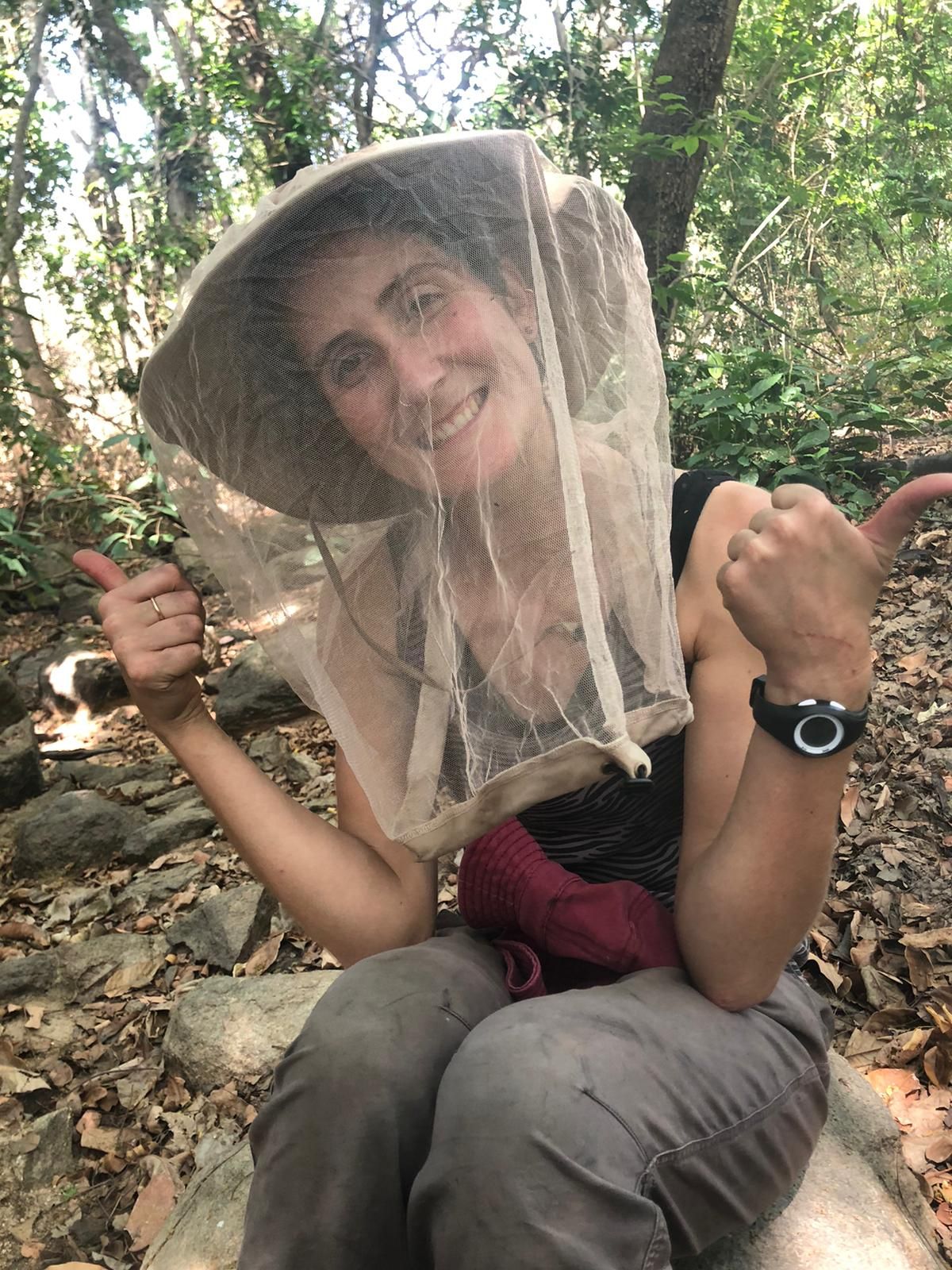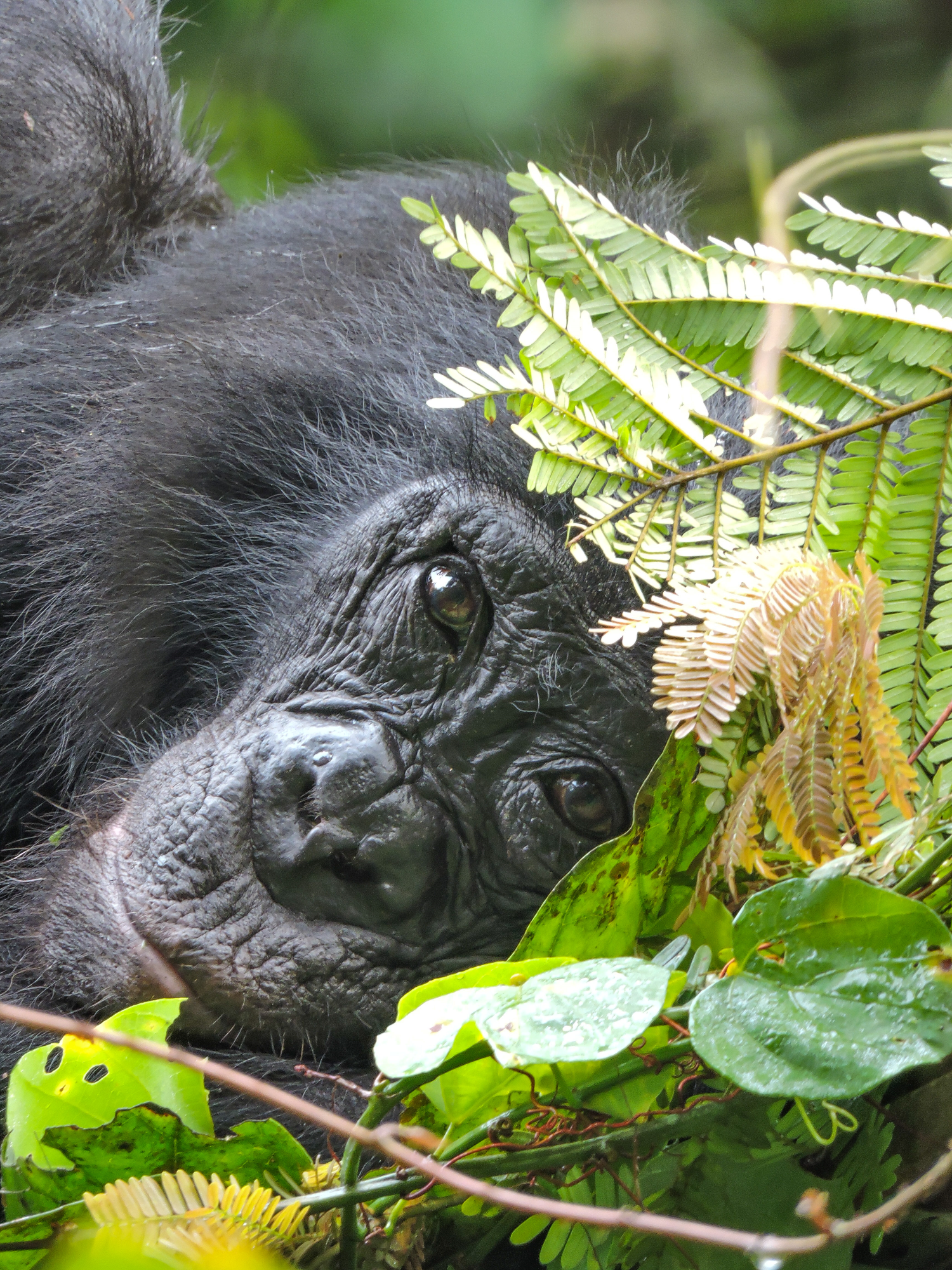Male bonobos care

Pflegenotstand bei Bonobos
Affenkinder werden als Nesthocker geboren die ohne ständige Betreuung und massive Unterstützung nicht überleben. Mütter sind 24 Stunden im Einsatz und fungieren nicht nur als Tankstelle und Transportvehikel, sondern stellen eine Ressource bereit, die sich am besten mit sozialer Fürsorge beschreiben lässt. Die intensive Kinderbetreuung ist energetisch äußerst kostspielig und limitiert den Reproduktionserfolg der Weibchen. Das intensive Langzeitengagement lohnt sich also nur, wenn es die Überlebenschancen des Nachwuchses verbessert. Männern scheint die sprichwörtliche „Affenliebe“ fremd. Ihr Beitrag zum Überleben des Nachwuchses besteht in erster Linie im Schutz vor Raubfeinden und gruppenfremden Artgenossen. Die geschlechtsspezifische Rollenaufteilung entspricht zwar der Norm, ist aber nicht unumstößlich. Im Notfall kann Mann mehr! Zizu ist jetzt fast 13 Jahre alt und gehört zur Westgruppe der Bonobos im Wald von LuiKotale. In der gleichen Gruppe leben seine Geschwister Ben, Zed und Zaina. Als Mutter Zoe vor gut einem Jahr verschwand, verloren die vier Geschwister von einem Tag auf den anderen ihre stärkste Verbündete. Unabhängig vom Alter ist für Bonobos der Verlust der Mutter sicher ein Trauma. Für Kinder ist das Ereignis lebensbedrohlich. Hoffnung besteht nur, wenn es Verwandte gibt. Zaina war fünf Jahre alt, als Zoe starb. Sie konnte laufen, klettern und wusste auch, wie man sich Nahrung beschafft. Dennoch wurde sie von Zoe noch oft getragen und nachts verschwand sie im Schlafnest der Mutter. Schon wenige Tage nach Zoes Tod übernahm Zizu die Rolle der Mutter. Anfänglich kümmerten sich auch noch junge Weibchen um Zaina, aber schon nach kurzer Zeit hatte der Bruder die Pflege seiner Schwester im Griff. Inzwischen ist das Geschwisterpaar unzertrennlich. Zaina, die anfänglich apathisch und physisch stark geschwächt war, scheint über den Berg zu sein. Und Zizu demonstriert tagtäglich ungewöhnliche Kompetenzen. Macht sich die Gruppe auf den Weg, dann wartet er, bis Zaina auf seinem Rücken sitzt. Ist der Einstieg in einen Futterbaum schwierig, hilft er der Schwester in die Baumkrone. Täglich kümmert er sich um die Fellpflege und am Abend baut er ein Nest, in dem Platz für zwei ist. Ob männlichen Bonobos die Aufzucht von Jungen „in die Wiege gelegt ist“ erscheint fraglich. Aber Zizu zeigt, wie anpassungsfähig das Verhaltensrepertoire von Primaten ist und wie wichtig die Anwesenheit älterer Geschwister sein kann.
Male bonobos care
Primates are born in a premature stage of development and would not survive without intensive parental care. Mothers are on duty 24 hours a day; they provide nutrition and transport as well as social welfare, a service whose significance becomes visible when it is missing. Intensive parental care is energetically expensive and, as a consequence, limits the reproductive success of females. However, if it improves the chances of survival of the offspring, the intensive long-term engagement becomes worthwhile. Males appear to lack traits of parental behaviour. Their contribution to the survival of offspring consists primarily in protection from predators and aggression from conspecifics. While this type of sex-specific division of parental effort appears to be normative, it is not necessarily a fixed trait. In emergency cases, males can do more! Zizu is a male bonobo of almost 13 years and belongs to the West-Group that ranges in the forest of LuiKotale. His siblings are Ben, Zed, two adult males, and his sister Zaina, all of them residing in the same community. When Mother Zoe disappeared one year ago, the four siblings lost their strongest ally. Regardless of age, the loss of the mother is certainly one of the strongest trauma in the life of a bonobo and for infants, the event is life-threatening. The only hope is the presence of relatives. Zaina was five years old when Zoe died. She could walk, climb and knew how to get food. Nevertheless, when the group moved fast, she was still carried by Zoe, and at night she disappeared into her mother's nest. A few days after Zoe's death, Zizu took over the role of the mother. Initially some young females assisted in caring for Zaina but after a short time, the brother took over the care of his sister. Today, the siblings are inseparable. Zaina, who was initially apathetic and physically exhausted, seems to be out of the risk zone. And Zizu shows skills that are rarely performed by male primates. When the group sets off, he waits for Zaina and offers a ride on his back. If the group enters a food tree that is difficult to access, Zizu makes sure that his sister finds her way in. He is the most important grooming partner of his sister and in the evening he builds a nest with room for two. Whether or not the parental effort is part of the behavioural repertoire of male bonobos remains to be seen. What Zizu demonstrates however, is an unusual extend of behavioural plasticity and the advantage of living together with older siblings.
Neuer Text























